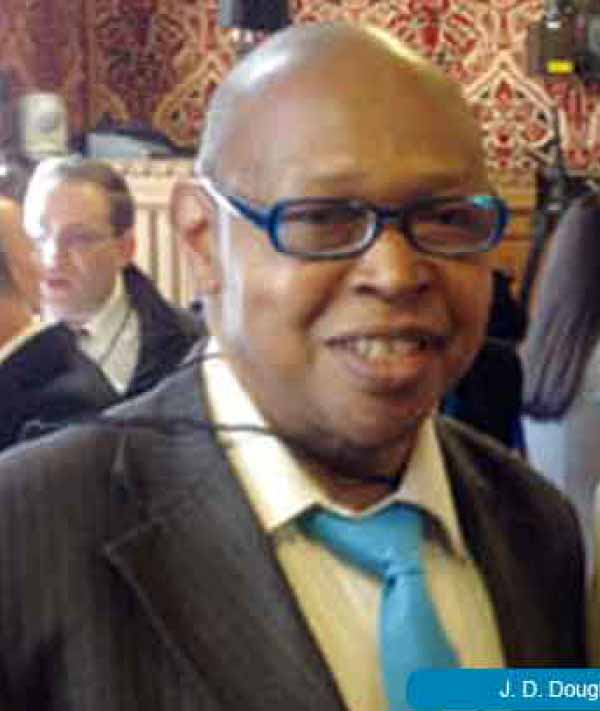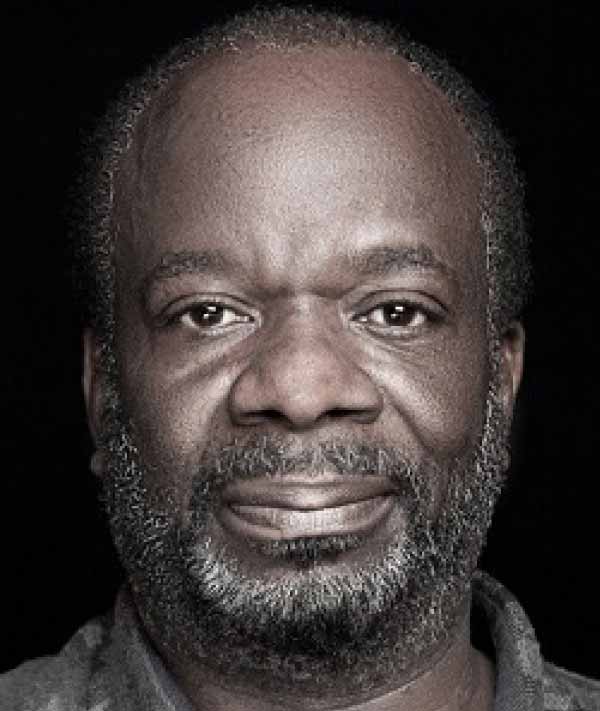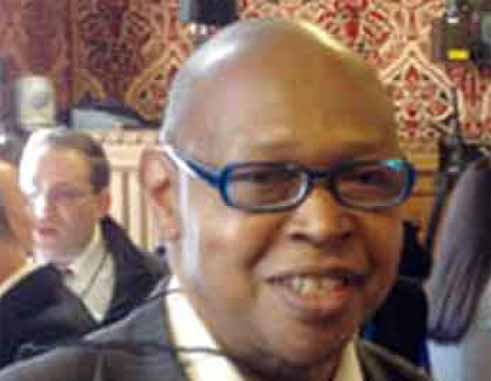
Walcott’s Epic Poem Comes To National Cultural Centre – PART ONE
THEATRE lovers in St. Lucia are about to feel the way they did as in the hey day of the St. Lucia Arts Guild, staging the plays of Derek and Roddy Walcott at the Castries Town Hall in the early sixties. Theatre nights don’t come much brighter. Local audiences are in great anticipation of May 3 and May 4.
Cometh the hour 7.00 p.m., eagerly, they will be in their seats at the National Cultural Centre. The front rows will be filled with the usual suspects of dignitaries and people you should know. The movers, the shakers will be there. The acolytes will be in attendance as well. A few passing tourists will stand out, by their sunburnt bronze new skin. It is going to be a, “So where were you?” that kind of moment. Those in attendance will be blessed and privileged to be in exalted company of Theatre Royalty. The posers will be waving at all and sundry, making sure their presence has been registered.
Yes, it will be a gala all right. Not since, the cast of Doctor Dolittle wandered through a performance of Dream on Monkey Mountain at the Castries Town Hall, with the late Sixtus Charles, climbing Geoffrey Holder like a coconut tree, will local theatre audiences enjoy, such a spectacle. And the man making the predication: Who else but St. Lucia-born, JD Douglas, Producer, Director and Writer. The man who brought to the Theatre World in England, the seminal musical Black Heroes in the Hall of Fame and JA Story- The History of Jamaica Music, among many landmark theatre productions.
As JD admits fascinating and out of this world experience: “ The work of the man dubbed the finest writer in the English Language, Sir Derek Walcott, the island’s most celebrated international actor and arguably most recognizable St. Lucian face on the planet – yes, Television has that power – Joseph Marcell, and a (Magnus opus) master piece of writing named “Omeros”, with Nobel Laureate pedigree imprint to boot, all colliding and cemented by a most inventive, innovative Director called Bill Buckhurst”. For the doubters, still pondering, “So what is all the fuss about? “, I humbly point in the direction of Maeve Tynam, when he suggests: “Omeros can be seen as the culmination of Walcott’s life long and continuing engagement, with classic models and configuration of and for local St. Lucian realities.”
The poet, Ted Hughes has said that the best way to understand poetry, is to hear the writer, read his or her work. Well, the production of Omeros will certainly attest to that assertion, as the production will prove that very talented and capable actors, with an artistic director juggling the strings can evocatively bring the written words of poetry to a very high level of comprehension.
So, if you have never heard of Omeros, or have forgotten, what you have read all those years ago, here’s a re-introduction. Derek Walcott’s epic dramatized poem Omeros will be staged as a two hander. Joseph Marcell and Joan Iyiola are directed by Bill Buckhurst.
The sound scape of music and sound effects are all created by TayoAkinbode.
Set in the village community of Gros Islet in the northern tip of St Lucia, the production does not attempt to put the world’s ranging spread of the whole poem on stage, but concentrates on the fishermen and others. Hector and Achille are fishermen rivals for the love and embrace of beautiful Helen.

Helen is the housemaid to retired British Army Sergeant Major Denis Plunkett and his wife Maud. This Helen’s beauty, goes beyond the launching of a thousand ships. She creates an earthquake, chaos, turmoil around her. She turns heads and plucks heart strings, while her lovers compete for her attentions. Plunkett’s history is inspired by his attraction to his exquisite maid, Helen.
Achille and Hector are, of course, named for the Greek and Trojan heroes. There is also Philoctete, who, like his classical namesake, has a festering wound, although this one is compassionately cured by a wise woman at the No Pain Café, who knows an old African remedy. Many believe that his festering sore is a metaphor of the many ills that befall St. Lucian life, attitude and malaise.
There is a blind man too, a reminder of Homer himself: he is known as Seven Seas (like the Cod-Liver Oil Brand). These classical resonances play a pivotal part of the narrative. Achille’s father was a slave and Philoctete thinks his wound “came from the chained ankles of his grandfather’s ”. Their actions are informed by an African sensitivity and the memory of Slavery are part of their DNA.
Conflict is manifested, in the carefully constructive narrative. The story is recounted of the chopping down of old Gods and the coming of Crucifix – signing Christianity, mirrored in the present-day duel, that sees Hector raising his cutlass and chasing after Achille. Yes, Fair Helen is not only wanted and desired, she is the raison d’etre of their future happiness. This beauty may play with the emotions of both men and not known by whom she is pregnant, but she must choose between them and her behaviour makes the storyteller, question, whether this is a black maid or blackmail. Walcott the genius is at play again.
Mention must also be made of the epic nature of the story. Joyce Stephen Dedalus, best described epic as a literary form, in which the “personality of the artist passes into the narrative itself, flowing round and round the persons and the action like a vital sea.”
The characters played by the two actors are full of colour and a unique vibrancy that only transcends from the Caribbean. Even British Major Plunkett and his wife seem to have inhaled lung filled doses. All the characters have dreams, desires, soul. There is a reality and a vulnerability. They are you, they are me, they are the sum experience of many things. As one St. Lucian, currently serving in Her Majesty Armed Forces was overheard at a London show, “When Marcell cut the roots with his cutlass in anger and he spoke the words, now you know, what’s it like to be without roots; that really resonated with me, I felt that sentiment over and over.” Yes pure Theatre to move the individual as Theatre ought to do.
Thespis from which the word thespian is derived, is credited as being the first person to introduce dialogue to the stage in 6th century BC. He was also an actor of note. His many disciples including the Stanislavsky School of Acting proclaim that a play is not actors, a play is not a script, it is not a Director moving actors on stage. It is but the synergy of what is happening on stage and the reverberation and reactions of the audience. You will find no better example of the mantra after watching Omeros.
St. Lucians living in England, who attended the special St. Lucia night at the Globe last year, will nod affectionately and smile wholeheartedly at the above statement.
We are also asked to confront our own sense of identity more than before, very much like the canoes carved from logs that “begin to forget they were trees”. Recently, the slogan 100% St. Lucian has brought on serious debate. Some politicians seem to have embraced and wear the slogan like a badge of honour. But then, we have all heard George Bush the elder shout, read my lips, “no more taxes”. We also know what happened. He did raise taxes. Whatever your entitled view on the issue, the Jamaican born sociologist and man of deep thoughts Professor Stuart Hall, believes the Caribbean is the ‘purest diaspora’, a place where everybody comes from somewhere else.
Walcott himself gives his view in his 1962 poem: A far cry from Africa.
I who am poisoned with the blood of both
Where shall I turn, divided to the vein
I who have cursed
The drunken office of British rule how choose
Between this Africa and the English tongue I love?
Walcott has also written of forefathers with Ashanti and Warwickshire blood, but I digress.





![Simón Bolívar - Liberator of the Americas [Photo credit: Venezuelan Embassy]](https://thevoiceslu.com/wp-content/uploads/2025/12/Simon-Bolivar-feat-2-380x250.jpg)



